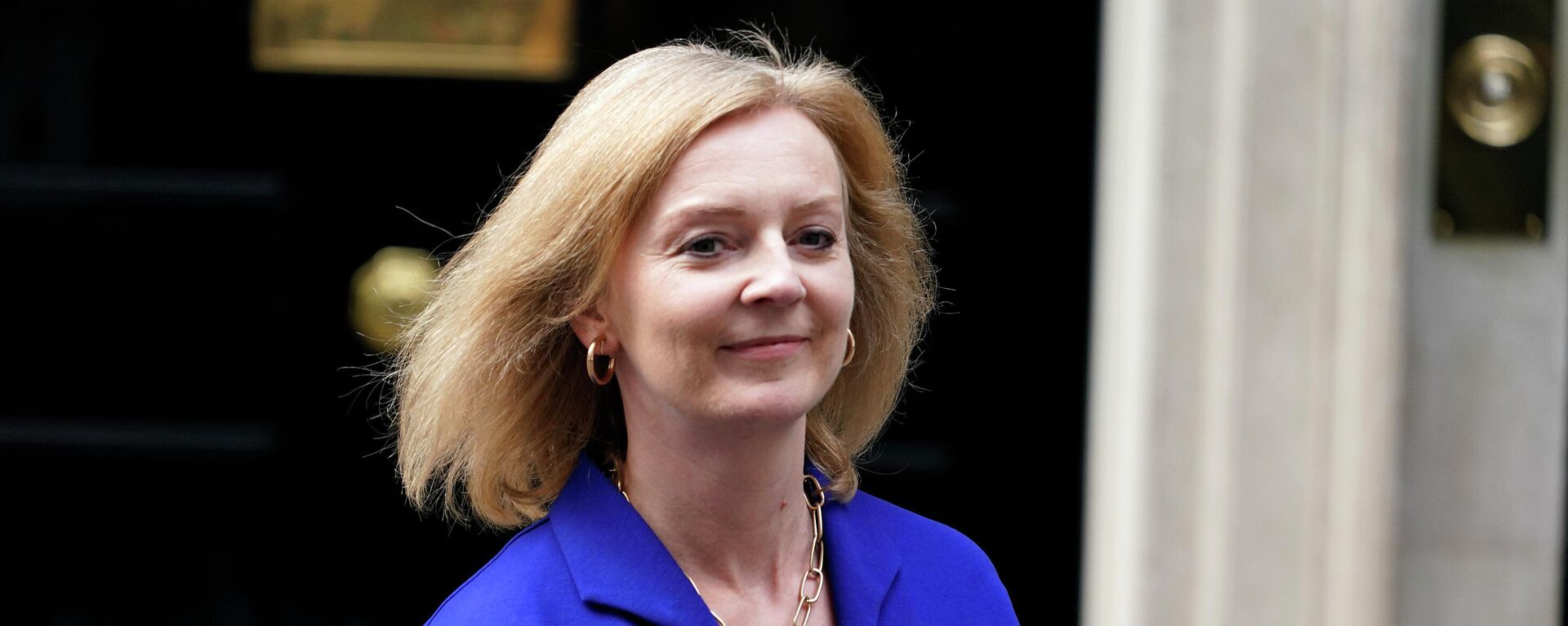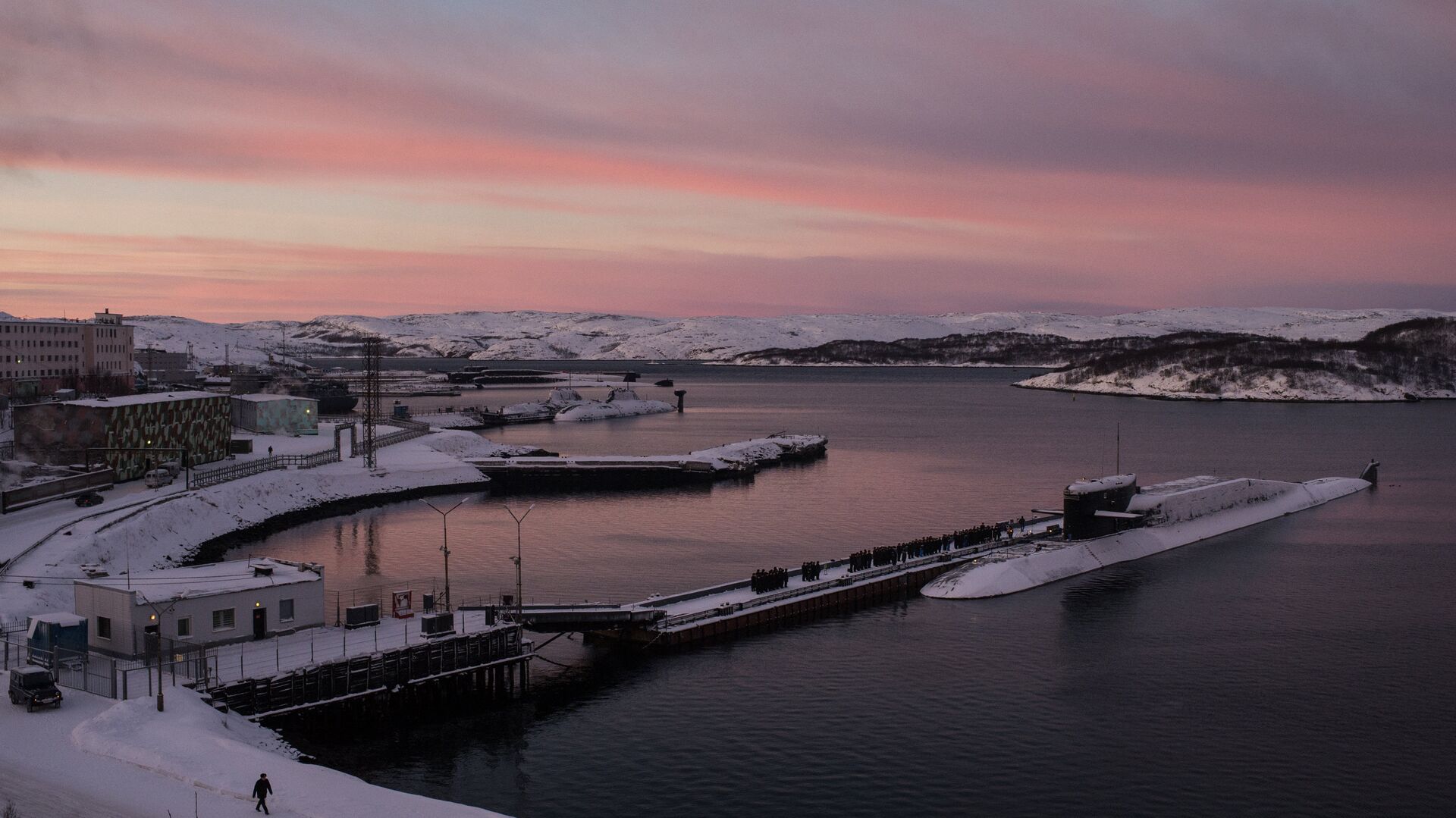https://sputnikglobe.com/20220228/russian-nuclear-triad-begins-combat-duty-with-reinforced-staff-shoigu-tells-putin-1093446860.html
Russian Nuclear Triad Takes Up Standby Alert Duty With Reinforced Staff, Shoigu Tells Putin
Russian Nuclear Triad Takes Up Standby Alert Duty With Reinforced Staff, Shoigu Tells Putin
Sputnik International
The Russian president ordered the nation's nuclear deterrence forces to be placed on high alert Sunday following "aggressive statements" from NATO related to... 28.02.2022, Sputnik International
2022-02-28T11:41+0000
2022-02-28T11:41+0000
2022-02-28T12:51+0000
russia
https://cdn1.img.sputnikglobe.com/img/106268/46/1062684648_0:160:3077:1890_1920x0_80_0_0_0165ec410d142cf021e7136aa491a0a3.jpg
Russia's ground, air and submarine-based nuclear deterrent forces have begun standby alert duty with reinforced personnel, Defence Minister Sergei Shoigu has informed President Putin.Putin asked Shoigu and Chief of General Staff Valery Gerasimov to put the Russian armed forces' strategic deterrent on "special combat duty mode" on Sunday. The president ordered the heightened alert status to be implemented after alleging that "top officials of leading NATO nations" had indulged "in making aggressive statements about our country," on top of and separately from the sanctions slapped on Moscow by Washington and its allies.Putin did not specify who these "top officials were" or which specific "aggressive" remarks he was referring to, but just hours prior to his comments, UK Foreign Secretary Liz Truss declared in an interview with Sky News that unless Russia's ongoing military operation in Ukraine to demilitarise the country was "stopped," the crisis could "end up in a conflict with NATO".Truss has been heavily criticised at home due to her gaffe-prone remarks about the Russia-NATO crisis over Ukraine, including her accidental refusal to recognise Moscow's sovereignty over the internationally recognised Russian regions of Rostov and Voronezh during talks with Foreign Minister Sergei Lavrov, and her vow of support for "our Baltic allies across the Black Sea," - two different maritime regions separated by over 1,200 km of land. Some Britons have vented their frustration over the fact that a person with such a proven lack of knowledge on the matter at hand has been given the authority to freely make uninformed and potentially dangerous remarks on behalf of Britain.Tensions between Russia and the West jumped to levels unseen since the Cold War in recent days over the military operation begun by Moscow late last week aimed at demilitarising Ukraine. President Putin ordered the operation to be launched after a formal request for assistance from the Donetsk and Lugansk People's Republics - which have faced weeks of escalating attacks by the Ukrainian military and which began mobilising and evacuating their civilian populations to Russia over unceasing artillery, mortar and sniper fire.The US and its allies have responded to the crisis by ramping up military assistance to Ukraine, heavily sanctioning Russian government officials, banks and businessmen, and further beefing up NATO's military footprint near Russia's borders. The alliance have ruled out direct military involvement in Ukraine, however.
https://sputnikglobe.com/20220227/uks-truss-claims-unless-russian-op-in-ukraine-is-stopped-it-may-result-in-conflict-with-nato-1093416235.html
Sputnik International
feedback@sputniknews.com
+74956456601
MIA „Rossiya Segodnya“
2022
News
en_EN
Sputnik International
feedback@sputniknews.com
+74956456601
MIA „Rossiya Segodnya“
Sputnik International
feedback@sputniknews.com
+74956456601
MIA „Rossiya Segodnya“
Russian Nuclear Triad Takes Up Standby Alert Duty With Reinforced Staff, Shoigu Tells Putin
11:41 GMT 28.02.2022 (Updated: 12:51 GMT 28.02.2022) The Russian president ordered the nation's nuclear deterrence forces to be placed on high alert Sunday following "aggressive statements" from NATO related to the Russian military operation in Ukraine. Earlier, UK Foreign Secretary Liz Truss warned that if Russia wasn't "stopped" "in Ukraine," the crisis could escalate into a conflict with NATO.
Russia's ground, air and submarine-based nuclear deterrent forces have begun standby alert duty with reinforced personnel, Defence Minister Sergei Shoigu has informed President Putin.
"The Minister of Defence of the Russian Federation, Army General Sergei Shoigu, has reported to Supreme Commander of the Armed Forces of the Russian Federation V.V. Putin that, in accordance with his order, the duty shifts of the command posts of the Strategic Missile Troops, the Northern and Pacific Fleets, and Long-Range Aviation Command have begun to carry out combat duty with reinforced personnel," the MoD told reporters in a statement Monday.
Putin
asked Shoigu and Chief of General Staff Valery Gerasimov to put the Russian armed forces' strategic deterrent on "special combat duty mode" on Sunday. The president ordered the heightened alert status to be implemented after alleging that "top officials of leading NATO nations" had indulged "in making aggressive statements about our country," on top of and separately from the sanctions slapped on Moscow by Washington and its allies.
Putin did not specify who these "top officials were" or which specific "aggressive" remarks he was referring to, but just hours prior to his comments, UK Foreign Secretary Liz Truss
declared in an interview with Sky News that unless Russia's ongoing military operation in Ukraine to demilitarise the country was "stopped," the crisis could "end up in a conflict with NATO".

27 February 2022, 10:47 GMT
Truss has been heavily criticised at home due to her gaffe-prone remarks about the Russia-NATO crisis over Ukraine, including her
accidental refusal to recognise Moscow's sovereignty over the internationally recognised Russian regions of Rostov and Voronezh during talks with Foreign Minister Sergei Lavrov, and her vow of support for "our Baltic allies across the Black Sea," - two different maritime regions separated by over 1,200 km of land. Some Britons have
vented their frustration over the fact that a person with such a proven lack of knowledge on the matter at hand has been given the authority to freely make uninformed and potentially dangerous remarks on behalf of Britain.
Tensions between Russia and the West jumped to levels unseen since the Cold War in recent days over the military operation begun by Moscow late last week aimed at demilitarising Ukraine. President Putin ordered the operation to be launched after a formal request for assistance from the Donetsk and Lugansk People's Republics - which have faced weeks of escalating attacks by the Ukrainian military and which began mobilising and evacuating their civilian populations to Russia over unceasing artillery, mortar and sniper fire.
The US and its allies have responded to the crisis by ramping up military assistance to Ukraine, heavily sanctioning Russian government officials, banks and businessmen, and further beefing up NATO's military footprint near Russia's borders. The alliance have ruled out direct military involvement in Ukraine, however.



